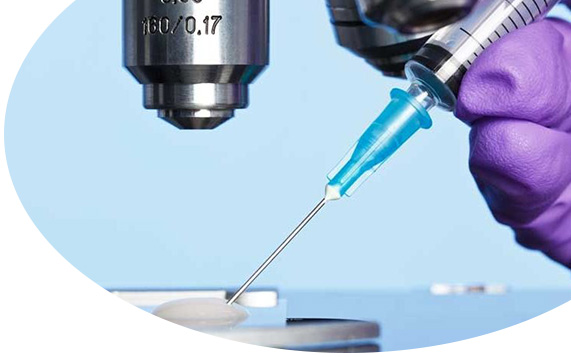
The assisted reproductive therapy, which is applied for young couples who do not have a child naturally and those with unspecified infertility causes prior to “in vitro fertilization”, is called intrauterine insemination or IUI.
Intrauterine insemination, which is carried out through the transfer of high-quality sperm taken from men into the uterus of women at the ovulation period with a thin catheter, is applied for the artificial fertilization of healthy eggs in the uterus with high-quality sperm.
When To Apply For Intrauterine Insemination?
In cases of male infertility (low sperm count, low sperm motility and morphological problems), undiagnosed infertility symptoms, ejaculation dysfunction, fertility boosters without any result, lack of cervical mucus which plays a role in the meeting of sperm and eggs, cervical scar tissues preventing to reach sperm into the uterus or impossibility of physical sexual intercourse, intrauterine insemination can be preferred as assisted reproductive technique.
Women should not have chocolate cysts, their fallopian tubes should be open and any pelvic infection should not be detected in order to apply intrauterine insemination. Intrauterine insemination may increase the likelihood of pregnancy in women who cannot be diagnosed with health problems which may hinder her getting pregnant after obstetricians and gynecologists carry out comprehensive examinations. The main purpose of intrauterine insemination which can be performed with the administration of hormone therapy into women with a possible egg development problem or passing over it is to send the sperm with high concentration as close to the egg as possible.
What Is The Success Rate Of Intrauterine Insemination?
The success rate of IUI treatment is affected by many factors. The possibility of pregnancy may vary according to the age of the woman, her cause of infertility, whether or not to use fertility boosters and how often intrauterine insemination is applied.
The most important factors for the success of intrauterine insemination are to identify the ovulation periods of women clearly and to leave sperm with high concentration in the vicinity of the egg at the most suitable time.
Intrauterine insemination is considered as a short and relatively easy infertility treatment method. After the procedure, women can return to their daily lives after staying in the supine position for about 15 – 45 minutes in order to increase the chance of fertilization.
We, as KADOMER, shape special treatment process for our patients applying for infertility treatment. We perform all the diagnoses that will increase the chance of pregnancy with the help of technology, and try to facilitate the treatment processes for the couples who want to have a child.
